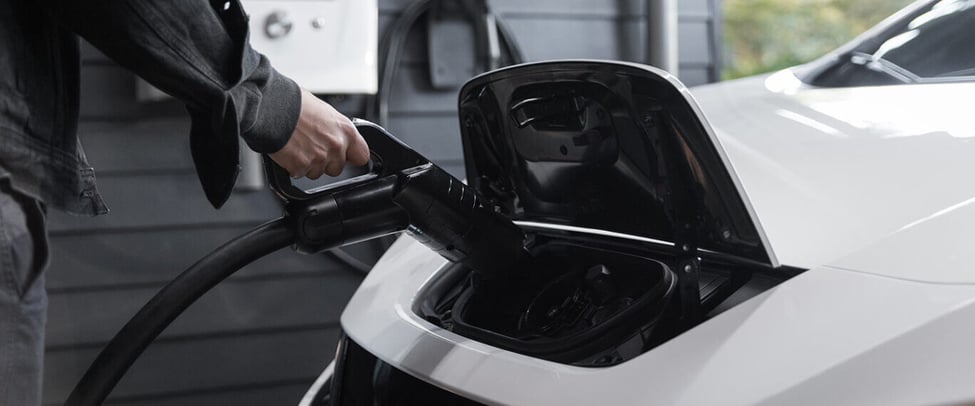Switching to an electric vehicle (EV) not only helps you save money on fuel but also contributes to environmental preservation. While public charging stations are becoming increasingly accessible, having your own home charging station offers convenience. If you're contemplating installing an electric vehicle charger in your new home, here are some essential factors to consider.

Evaluate Charging Speed
Most electric vehicles come with a standard Level 1 charger that connects to a regular outlet but charges the vehicle at a slower pace. To expedite the charging process, many EV owners opt for a Level 2 charger for their homes. Level 2 chargers operate at a higher voltage (240-volt) and amperage, allowing for faster charging. However, they require a specific plug type, typically necessitating the assistance of an electrician for installation.
Hard-Wired vs. Plug-In Chargers
You have the option to purchase a plug-in Level 2 charger at a lower cost, and these chargers offer portability. On the other hand, hard-wired chargers, permanently installed, can typically handle more current, resulting in faster charging times. They are especially suitable for outdoor charging scenarios.
Determining Installation Location
If your new home lacks a garage or carport, installing a home EV charger may be impractical. Installing the charger in your garage is relatively straightforward if you have a suitable power source available. However, if your garage lacks a power outlet, additional construction work, such as running cables underground or through the basement ceiling, may be necessary. These factors can significantly prolong the installation process and increase costs.
Installation Expenses
For straightforward installations with existing power outlets in the garage, you can expect installation costs of around $500 or more. However, in more complex cases where the power source is over 20 feet away from the vehicle's location or when upgrading the home's electrical service is necessary, costs can rise significantly. Additional charges, ranging from $2,000 to $4,000, may apply if a new electric panel is required. In cases where the entire electrical service needs upgrading, expenses can reach up to an extra $8,000.
Rebate Opportunities
While the costs of home EV chargers and installation can be substantial, many provinces and municipalities in Canada offer rebate and incentive programs for electric vehicle purchases and charger installations. For instance, the government of B.C. provides rebates of up to $8,000 for electric vehicle purchases, while Fortis BC and BC Hydro offer rebates of up to 50% of the purchase and installation costs of Level 2 chargers, up to a maximum of $350.
If you're considering a move to support a greener lifestyle, our specialized real estate agents can assist you in finding the perfect home and guide you through the transition process.

